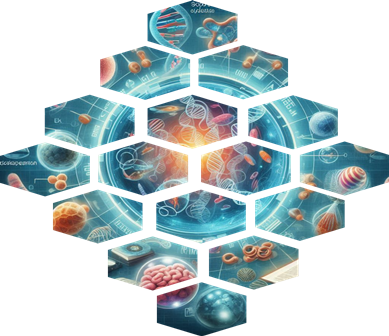BCA – IT for Healthcare program: As the new trends of AI and information technology emerging into the field of medicine, the health care data has been given utmost importance from restoration to extraction. There is a surge of innovations in the non clinical domain equal to clinical practices. On this platform of information technology in health care the medical records are saved as electronic medical records. The right medical IT solutions, healthcare & medical offices can process patient data faster and more accurately, decrease the amount of time to reach a diagnosis, and avoid downtime and other IT-related complications. Bachelor of computer applications IT health care actually deals with IT solutions for the health care in hospitals and clinics. This course trains the students to develop and maintain IT solutions for the health care sector. The course will be dealing with various subjects related to the health care industry such as health care IT solutions, quantitative techniques, financial accounting and human resource management in the healthcare industry. Duration: 3-year undergraduate course. (6 semesters) BCA IT for Healthcare program is the best suited course for the students who are interested in pursuing their career in computer fields especially in the health sector. Eligibility: The qualification for eligibility for BCA IT for Healthcare is a pass in 10+2/PUC/ISC/CBSE/NIOS/State Boards or a three-year Diploma in Engineering from the Government of India/ Government of any State or any recognized Boards. Preference is given to candidates who have studied mathematics or biology as one of the subjects, and such qualifications are considered equivalent by the University. Placements: India can generate a staggering $774 billion in revenue and create 12 million jobs by 2030 with an investment of $217 billion in healthcare and allied sectors, according to a report by Business today. “Indian healthcare will become the second most attractive investment sector this decade, behind food, agri and agritech but ahead of BFSI, financial inclusion and fintech. Careers after BCA IT for health care: Working as a healthcare IT professional offers the opportunity to start a rewarding career that makes a difference. Healthcare IT Specialists: In this role they will provide support and assistance to health care professionals and staffs. They will ensure that all IT systems applications and hardware are functioning optimally to support the delivery of high-quality patient care. They will be closely working with other IT professionals, health care providers and vendors to ensure that all IT related needs at health care domine are met efficiently and effectively. Health Informatics Analyst: Unlike other healthcare roles, health informatics doesn’t involve direct patient care. They won’t spend time at bedsides or giving exams. The work will instead be focused on the data created by patient interactions. They will be responsible for collecting and analyzing this data and using it to make improvements to healthcare facility. Medical Software Developer: Healthcare software developers are engineers who work on designing and developing software applications for the healthcare industry. These applications or platforms are typically for clinical activities like consultations or healthcare management, administrative activities like staff management, or financial activities like billing and claims. Healthcare Systems Analyst: A health care system analyst first collects health data from a wide variety of potential sources, including electronic health records, financial reports, and patient surveys to then identify ways their healthcare client can improve operations. Used appropriately, this data can help an organization decrease costs, improve the quality of patient care, and identify areas where additional funding or research might be beneficial. They must also set up user-friendly dashboards, distribute regular reports, or otherwise communicate with the administration to identify useful conclusions from their data. They will also work in tandem with other healthcare employees, including health information managers, to reach these conclusions. Health Data Analyst: A career as a health care data analyst is at the intersection of both technology and health care industries. Data analytics can unearth powerful insights when applied to health care. These insights can reduce health care costs, deliver better care, and overall have a positive impact on people’s lives. A health care data analyst is an individual who uses data analytics to improve health care outcomes. By acquiring, combining, and analyzing data from multiple sources, health care data analysts contribute to better patient care, streamlined health care processes, and well-assessed health care institutions. They work primarily on the business side of medicine, unlike doctors, nurses, or medical assistants who work on the clinical side. Electronic Health Records (EHR) Manager: The Electronic Health Records Manager (EHRM) is responsible for the management of various enterprise applications/solutions with a primary focus on the electronic health records and related systems (“the EHR”). The EHRM serves as liaison with external vendors and internal support teams for the components of the EHR system and manages the implementation of new applications. Clinical Systems Managers: The role involves the analysis, design, installation, and maintenance of hospital computer information systems. Assists departments in the evaluation, documentation, technical planning and implementation of assigned systems as well as assisting with the development of policies and procedures. Evaluates new and existing software products. Formulates statements of problems or objectives and design solutions. IT Project Manager (Healthcare): The Healthcare Project Manager is responsible for the day-to-day coordination and efficient operation of a healthcare program. On the initiation of a new project, it is their responsibility to come up with a detailed project plan and solution for the problem that might arise. When a new project is launched, the Project Manager develops a detailed project plan and is responsible for coming up with a solution to any problems that arise. They are responsible for regular coordination and operation within the process. They oversee healthcare projects from start to finish, monitoring and reporting on the progress throughout the process. They also supervise and direct all team members involved in the project. Telehealth Specialist: Telehealth is broadly defined as the use of communications technologies to provide health care at a distance. Telehealth has become a valuable tool thanks to combined advances in communications, computer science, informatics, and medical technologies. Telehealth Specialists will be required in the implementation and management of the remote health care projects. Healthcare Technology Consultant: As a Healthcare Consultant you will provide advice based on your experience and the healthcare literature too small to medium healthcare organizations. You will spend 50% of your time at client sites providing advice and expertise to help them improve performance. You will collect information on the client’s operations and develop a needs assessment and assist them with implementation and execution, depending on client request. Health Information Manager: A health information manager (HIM) works almost exclusively with data. They protect and handle patient data of all kinds, including diagnoses, symptoms, test results, medical histories, and procedures. They ensure that the information is accurate, accessible, secure, and of high quality. This position is particularly vital in health institutions with a mix of traditional and digital records. Medical Database Administrator: Data is the lifeblood of modern business. Today’s Health care sector need database administrators who can help them organize and utilize the data to maintain a competitive edge. Database administrators (sometimes called DBAs) create and organize systems that store data in logical, easily usable ways so data analysts and other users can access the information they need. Medical Database administrators keep the hospitals/patients data safe, accessible and understandable. They also frequently work with management to understand the business’ data needs and plan goals for the database. Health IT Trainers: They play a vital role in the day-to-day operations of healthcare systems and facilities. Those working in this role are often responsible for the secure management of health information across computerized systems, and healthcare information technicians work behind the scenes in healthcare facilities to improve patient care through tech. The responsibilities includes obtaining, processing, and recording healthcare data, Ensuring information quality and security, Installing and administering basic computer systems and networks, Determining hardware and interface problems and providing support, Determining hardware and interface problems and providing support. School of Innovation and Information Technology at Asian Institute of Public health university. (https://aiph.ac.in/) Aspiring students embarking on a transformative academic journey should consider the BCA IT for Healthcare program at AIPH University for a multitude of compelling reasons. Recognized for its academic excellence and innovation, AIPH is a prestigious institution providing a cutting-edge curriculum in Information Technology for Healthcare. This BCA program is meticulously designed, blending comprehensive IT courses with a specialized emphasis on healthcare informatics. This ensures that graduates are well-prepared to navigate the dynamic intersection of technology and healthcare, positioning it as one of the emerging courses in the health industry. For those aspiring to a promising future in the growing field of IT in healthcare, the BCA IT for Healthcare program at AIPH university stands out as a beacon of opportunity. It offers a compelling mix of academic rigor, practical relevance, and a clear pathway to professional success.






